While cannabis plants can get some nitrogen from the air, they will usually need supplemental nitrogen in order to reach their full potential. Nitrogen is an important nutrient for your cannabis plant because it helps them to create new leaves and grow quickly. A lack of nitrogen can lead to stunted growth, yellowing leaves, and a general decline in plant health.
If you want your cannabis plants to reach their full potential, it is important to give them the nitrogen they need. There are a variety of ways to do this, including using nitrogen-rich fertilizers, compost, or even urine. By giving your plants the nitrogen they need, you will help them to grow strong and healthy. Let’s start at the beginning!
Nitrogen is an essential element for all living things. It is a key component of amino acids, which are the building blocks of proteins, and it is also a major part of chlorophyll, the molecule that allows plants to convert sunlight into energy. Nitrogen is found in the air we breathe, and it is also a major part of many fertilizers. A cannabis plant needs nitrogen for healthy growth, but too much nitrogen can be detrimental.
They are the building blocks of proteins. There are 20 different amino acids that can be combined to form thousands of different proteins, each with a unique function. Acids are essential for many processes in the body, including muscle growth, metabolism, and immune system function. Although the body can produce some amino, others must be obtained through diet. Foods that contain all of the essential amino acids are known as complete proteins and include meat, fish, poultry, and eggs. Vegetarians and vegans can get all of the essential acids by eating a variety of plant-based proteins, such as grains, legumes, and nuts.
A cannabis plant absorbs nitrogen from the soil through its roots. The amount of nitrogen available in the soil determines how fast a plant can grow. Nitrogen is used by plants to produce new leaves and stems, so a lack of nitrogen will cause a plant to stop growing or produce smaller leaves. Nitrogen is also used by plants to produce chlorophyll, so a lack of nitrogen will cause a plant to have fewer and smaller leaves, and the leaves may be lighter in color.
A key fact about nitrogen is that plants demand more and more of this macronutrient as they grow. The bigger a plant gets, the more nitrogen it needs and craves. This means that to meet the nutritional needs of your grow, you have to make sure that your marijuana plants have enough nitrogen to digest as they evolve. So, in short, nitrogen is a necessity.
Cannabis plants need a lot of nitrogen during the vegetative stage when the plant is growing new leaves and stems. During the flowering stage, the plant will need less nitrogen as it focuses on producing buds instead of leaves. If there is not enough nitrogen available, the plant will not be able to produce as many buds, and the buds may be smaller than normal.
The vegetative phase of a cannabis plant is when the plant is growing and developing its leaves and stems. This is the stage where the plant focuses on photosynthesis, which is how the plant produces its own food. The vegetative phase typically lasts for around two months, during which time the plant will grow to its full size.
After the vegetative stage, the plant will enter the flowering stage, when it will begin to produce buds. In order to ensure that a cannabis plant enters the next stage, growers need to provide the plant with a period of darkness for around 12 hours each day. This can be accomplished by using a grow light that is turned off for 12 hours each day, or by covering the plant with a black sheet during this period. By providing the plant with this period of darkness, growers can ensure that it enters the flowering stage and produces buds.
The best way to give your cannabis plant nitrogen is to use a fertilizer that contains nitrogen. There are many different types of fertilizers available, and you should choose one based on the stage of growth your plant is in. For example, during the vegetative stage, you will want to use an organic fertilizer with a higher ratio of nitrogen to phosphorus and potassium. During the flowering stage, you will want to use fertilizers with a lower ratio of nitrogen to phosphorus and potassium.
It is also possible to give your plants more nitrogen by using compost or manure. These organic materials contain high levels of nitrogen, which can be released into the soil as they break down. Urine also contains nitrogen, and it can be used as a fertilizer if it is diluted with water.
When using any type of fertilizer, it is important to follow the directions on the package. Over-fertilizing your plants can be just as harmful as not giving them enough nitrogen. If you are unsure about how much fertilizer to use, it is always better to err on the side of using less rather than more.
A cannabis plant may suffer from nitrogen deficiency if it does not have enough access to nitrogen. This can happen for a number of reasons, including poor soil quality, insufficient fertilization, or excessive root growth.
Nitrogen is an essential element for plant growth, and it plays a role in photosynthesis, respiration, and the synthesis of proteins. Without enough nitrogen, a cannabis plant will become stunted and have yellow leaves, and its leaves may begin to drop off, which is not good for plant growth. In severe cases, the plant may die.
If you add organic matter with high levels of carbon to your soil, then a lot of the nitrogen in your soil will probably be used by soil organisms to break down the carbon. This means less yummy, nutritious nitrogen-based food for your plants. This also happens when there is too much sand, the organic matter is not sufficiently decomposed, or it rains a lot: there is not enough bio-nitrogen available for your cannabis to keep growing.
If you suspect that your cannabis plant has a nitrogen deficiency, you can try to correct the problem by fertilizing the soil or providing the plant with additional nitrogen through a foliar spray.
Providing your plants with the essential nutrients is a key part of growing cannabis!
How to Diagnose and Treat Nitrogen Deficiency in a Cannabis Plant
Diagnose
There are a few ways to diagnose nitrogen deficiency in a cannabis plant. One way is to simply look at the plant and plant cells themselves.
Another way to diagnose nitrogen deficiency is to take a soil sample and send it to a lab for analysis. This will give you a more accurate picture of what nutrients are available to the plant and if nitrogen is one of them.
Yellowing leaves (starting at the tips and moving inward)
Browning and crisping of leaves (again, starting at the tips and moving inward)
Stems and leaf veins may turn a reddish-purple
Easy leaf removal (leaves falling off with little to no force)
Other symptoms of nitrogen deficiency include fewer buds and early flowering, as well as significantly lower yields
If you notice that your cannabis plants are exhibiting symptoms of nitrogen deficiency, it’s important to take action quickly in order to prevent further damage.
Treat
One way is to fertilize with a nitrogen-rich fertilizer
Another option is to add organic matter to the soil, such as compost or manure (This will help to increase the amount of nitrogen available to the plant)
If you’re growing cannabis in a hydroponic system, you may need to adjust the pH levels of your water
If the nitrogen deficiency is severe, you may need to provide the plant with additional nitrogen through a foliar spray
You can make your own foliar spray by mixing 1 part nitrogen-rich fertilizer with 10 parts water. Apply this mixture to the leaves of the plant, being careful not to wet the flowers or buds.
It’s important to continue monitoring your plant even after you’ve treated the nitrogen deficiency. This is because it can take a few weeks for the plant to recover and start showing new growth. If you don’t see any improvement after a few weeks, it’s possible that the nitrogen deficiency is more severe than you thought and you may need to consult with a professional.
The best way to prevent nitrogen deficiency in cannabis plants is to ensure that they have access to adequate levels of nitrogen from the start. This means using a high-quality soil mix and adding more nitrogen-rich fertilizer at planting.
A low pH at the root zone also causes nitrogen lockout, which means the plant can’t even access nitrogen when it’s present. High levels of zinc and manganese have built up at the root zone. So It’s important to monitor the pH and nitrogen levels in the soil throughout the growing season and adjust accordingly.
In some cases, nitrogen deficiency cannot be prevented, such as when it’s caused by too much root growth. In these cases, the best you can do is to monitor your plant closely and take action as soon as you notice any symptoms.
Nitrogen poisoning is a common problem among marijuana growers. Nitrogen is an essential nutrient for plants, but it can be toxic in large amounts. Symptoms of nitrogen poisoning include stunted growth, yellow leaves, and brown spots on the leaves. nitrogen poisoning is caused by using too many nitrogen-rich fertilizers or by having too much nitrogen in the soil.
If you suspect that your plant is suffering from nitrogen poisoning, immediately stop using any fertilizers and water the plant with plain water. Once the symptoms have cleared up, you can resume using fertilizers, but be sure to use them sparingly. With a little care and attention, you can avoid nitrogen poisoning and keep your plants healthy and happy.
Nitrogen deficiencies are a common problem in cannabis plants, but they can be easily remedied with the right organic fertilizer and some attention to detail. Be sure to monitor your plant closely and take action at the first sign of trouble. With a little care, you can keep your nitrogen levels where they need to be and enjoy a bountiful harvest.
Happy growing!
Nitrogen is a gas that makes up 78% of the Earth's atmosphere. It is an important element in the development of all living things.
Nitrogen is essential for the growth and development of plants. It is a key component of chlorophyll, which helps plants to produce food through photosynthesis. Nitrogen is also necessary for the formation of proteins, enzymes, and DNA.
Symptoms of nitrogen deficiency in plants include stunted growth, yellow leaves, and reduced flowering. nitrogen-deficient plants may also have smaller leaves and a weaker root system.
The best way to prevent nitrogen deficiency is to ensure that your plants have access to adequate levels of nitrogen from the start. This means using a high-quality soil mix and adding more nitrogen-rich fertilizer at planting. It's also important to monitor the nitrogen levels in the soil throughout the growing season and adjust accordingly.
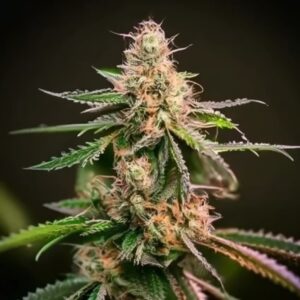


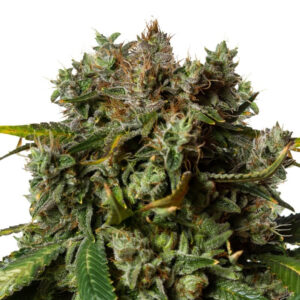

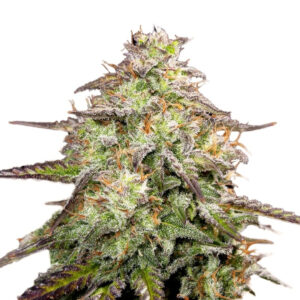
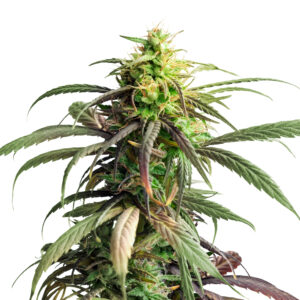






Related Posts
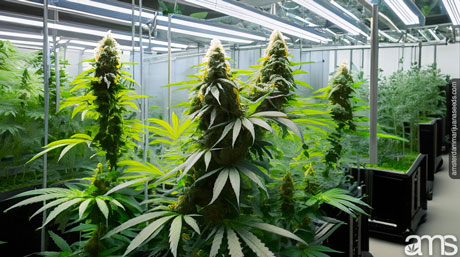
What is the relationship between CO2 and plant growth?, How does carbon dioxide supplementation affect plant development?, What are some methods used for CO2 enrichment in plant cultivation?
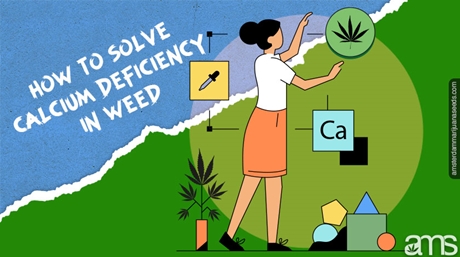
Like us, plants need nutrients to live. So do your weed plants. The crop requires nutrients to germinate, vegetate, flower, and fight off pests and diseases. We have several kinds of crucial nutrients that your weed crop needs. The nutrients are classified into macronutrients and micronutrients.

Welcome to the exciting world of cannabis and cryptocurrency! BTC and marijuana make the perfect match, offering a seamless and secure way to purchase weed seeds and accessories.